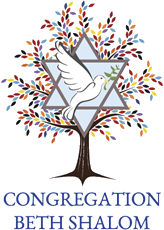Coming up in the summer is a challenging and troubling Torah portion — Parshat Korach. We read from the Torah about Korach’s rebellion against Moses and Aaron and his subsequent demise.
This section is problematic because much of what Korach says is absolutely correct. He argues that since all of Israel is a Holy People, and since God resides among us all, how dare Moses and Aaron raise themselves over everyone else? Is not this what Judaism teaches — even to the extent that some Sephardic congregations do Tefilla from floor level and only read the Torah from the bimah, because they do not want to give the impression that ANYONE’S prayers are more important than ANYONE ELSE’S?
Rabbi Joseph Soloveitchik (The Rav), the founder of the Modern Orthodox Movement, explains where Korach’s error lies. The Rav refers to three different covenants. The Noah Covenant is the obligations incumbent upon all people, Jewish or not. The Covenant with Abraham is what formed the Jewish People and instructs us of a further level of obligations. But according to the Rav, there is a third covenant called the Brit Gadol — the Great Covenant. This is when one accepts not only the other obligations, but also further accepts the obligation to be God’s partner in Tikkun Olam, in the betterment of the world. Soloveitchik points out that one can be part of the Jewish People and accept the Covenant of Abraham without actually DOING much, if anything at all. The individual who has accepted the Brit Gadol MUST work to make this world suitable for the Messianic Age.
Soloveitchik’s point is that Korach was wrong. We are not all equal, not all at the same spiritual level. Korach is saying, “You are all unique,” and The Rav adds, “Just like everyone else.”
I bring this up because very recently the Jewish Outreach Institute held its North American Conference in Philadelphia. For those who don’t know of the JOI, it is the leading organization addressing the challenge of getting Jews who feel alienated from the Jewish Community to return, as it were, to the fold. The JOI truly believes that with the expanding diversity of today’s Jewish Community, notions of “who is in” and “who is out” must change. An incredible number of intermarried families, adult children of intermarriage, multi-racial and GLBT Jews feel they are on the periphery of the Jewish Community. This is an incredible resource, especially at this time, who the Jewish Community can ill afford to lose.
This is one of the crucial roles that Congregation Beth Shalom plays in our community. It is one of the primary reasons we exist. It is our prime directive.
One highlight of the conference was the talk by Rabbi Irwin Kula, Director of CLAL (The National Jewish Center for Learning and Leadership). Rabbi Kula criticized the use of terms like “affiliated” and “intermarried”. He stated that Judaism itself believes there is no one correct way to be a Jew, and in using such terminology, we create “artificial barriers that don’t exist”. Instead, we should imagine a Jewish world where “there are no boundaries”.
Not surprisingly his remarks triggered a great deal of dissention and debate — so much of what he said just seemed so right, and so much of what he said just seemed so wrong A Jewish Community closed to Jews — NEVER! A Jewish Community with no boundaries — NEVER! But then again, why would we expect agreement on something as important and challenging as preserving our future?
Although Rabbi Kula used very different language, he was making the same point as Rabbi Soloveitchik. The Rav asserted that while there is a difference between someone who is a part of the Covenant of Abraham and someone who is a part of the Brit Gadol, they are all Jews, only different. And JOI says that while, yes, there is a difference between the Jew who is ‘in’ and the Jew who is ‘out’, they are all Jews.
Shouldn’t all Jews be ‘in’?
B’Shalom
Rabbi Stanley Halpern
